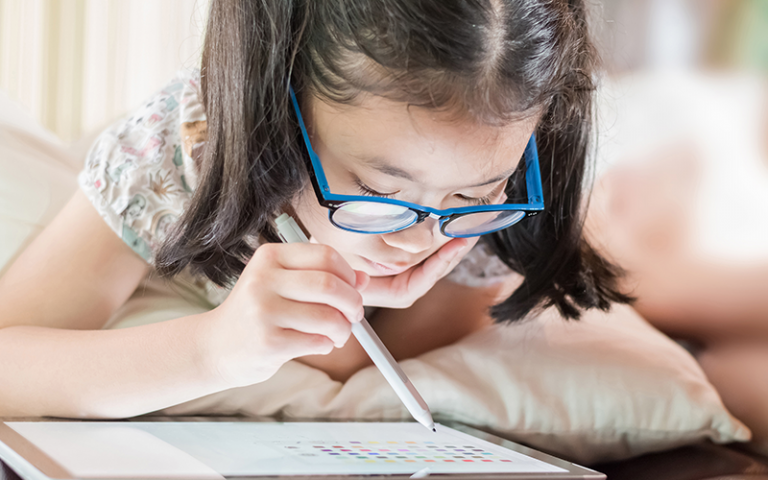Top-rated educational maths apps may not be best for children’s learning
27 May 2022
The top 25 maths apps for children under five-years-old do not reflect best practices on how children learn and develop their early mathematical skills, according to a new report from IOE, UCL’s Faculty of Education and Society.

Published today on UCL Discovery, the report throws into light the lack of governance and regulation for ‘educational’ apps. It reveals that only one of the top 25 apps, ranked by popularity in the iOS Apple App and Google Play Stores, had been formally evaluated to see whether they had any impact on children’s maths learning.
As part of the study, the researchers synthesised 50 research studies from 18 countries around the world which evaluated 77 educational maths apps during the first three years of school. They found that 90 per cent of studies showed that maths apps had some benefits for supporting young children’s mathematical learning and development.
In particular, learning with maths apps was maximised when the apps provided a personalised learning journey for children and gave them feedback explaining why their answers were right or wrong, as well as giving them praise and rewards. However, few of the top 25 maths apps included features that could do this.
The researchers argue that their findings demonstrate a lack of high-quality maths apps currently available for parents and teachers and highlight the need to improve the meaningful categorisation of educational apps on the app stores to facilitate parent and teacher choice.
Of the top 25 apps in the study that did include maths content, 68 per cent focused on number skills and 64 per cent on counting – yet these skills were often introduced in isolation from other maths skills and experiences. Other skills important for children’s mathematical development, such as basic arithmetic and shape, patterns, and measurement, were less frequently found.
Lead researcher Dr Laura Outhwaite (UCL Centre for Education Policy and Equalising Opportunities), said: “Educational technology and apps have become a huge part of our everyday lives, particularly since the Covid-19 pandemic. But with over 200,000 educational apps available, it can be tricky to know how to decide which ones to use and which ones will best support children.
“Our results demonstrate the limited options for identifying high-quality maths apps currently available for parents and teachers and highlights the need to improve the meaningful categorisation of educational apps on the app stores to facilitate parent and teacher choice.”
Co-author Dr Jo Van Herwegen, (UCL Psychology & Human Development), added: “Overall, the research shows that educational apps have indeed the potential to improve children’s mathematical outcomes and importantly allow for individual learning experiences but when deciding which apps to use, it’s important to consider the design features, as well as the learning experience offered by the apps and how these fit into your classroom or home environment.”
This study was funded by the Nuffield Foundation.
Links
- Read the full report on UCL Discovery
- Dr Laura Outhwaite’s research profile
- Dr Jo Van Herwegen’s research profile
- UCL Centre for Education Policy and Equalising Opportunities
- UCL Department of Learning and Leadership
- UCL Department of Psychology and Human Development
- IOE, UCL’s Faculty of Education & Society
- Nuffield Foundation
Image
- Credit: iStock / Chinnapong
 Close
Close

